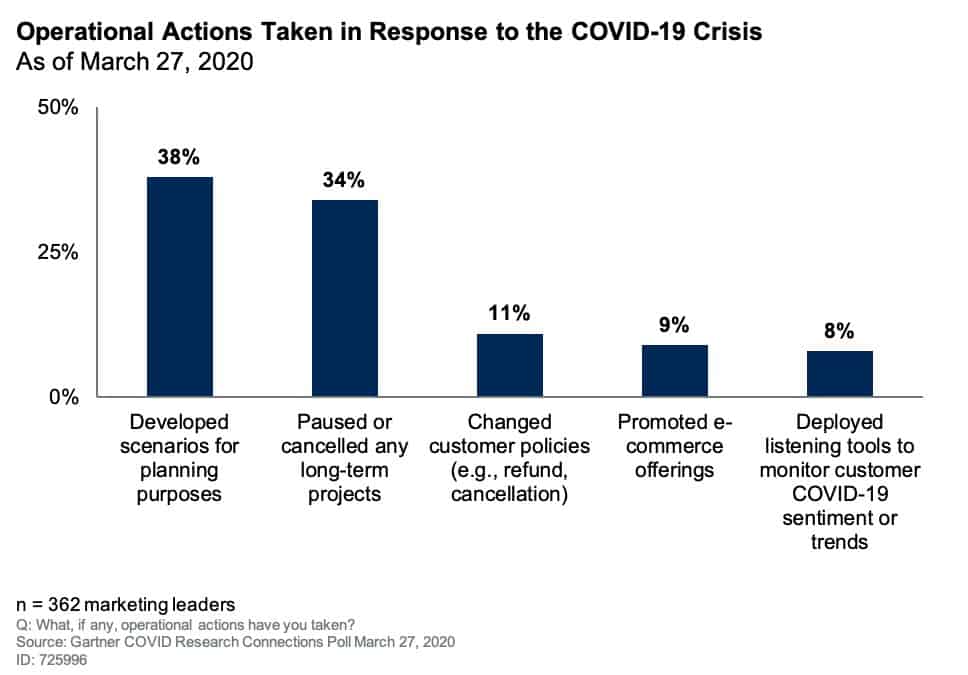The coronavirus is forcing rapid change on consumers and brands, however, nearly 30% of marketing leaders believe that a lack of agility and flexibility negatively impacts their marketing execution, according to Gartner.
A Gartner poll of 362 marketing leaders on March 27 showed that 38% of marketing leaders report “developed scenarios for planning purposes” as one of the top operational steps they’ve taken to manage this time of business disruption (see Figure 1).
“One key element of effectively building and planning scenarios is data,” said Lizzy Foo Kune, senior director analyst, for Gartner for Marketers. “Marketing leaders look to data and analytics teams to offer insight into current trends and uncertainties to avoid making errors in decision making and help chart a clear way forward. But under the present circumstances, data and analytics teams are strained to deliver against expectation and need to develop new ways of handling current data requirements.”
Figure 1. Operational actions taken in response to the COVID-19 crisis

To streamline analytics efficiencies and enable rapid strategic response, Gartner recommends that marketing analytics teams take the following actions:
Adopt lean principles to guide efficient analytics and insights functions. To efficiently manage data and insight requests, draw from the lean framework that has become prevalent in the manufacturing and startup industries. Defined as a production optimization methodology that eliminates activities that do not create value for customers, lean describes seven categories of possible waste. The most important categories to focus on minimizing waste are overproduction, processing and inventory.
Prioritize requests to deliver data and insights faster. The pressure to deliver more insights more quickly has increased exponentially due to disruption from COVID-19. “To meet this demand, marketing leaders must identify what truly matters most, create a short set of criteria to prioritize each request and identify how best to address it. The criteria used should be objective and measurable,” said Foo Kune.
Embrace agile principles to guide teams through uncertainty. Use agile work practices, including project sprints and frequent status checks, to foster a culture of collaboration. A time-boxed effort, called a “sprint,” fosters a flexible environment for experimentation and innovation while also ensuring that the data team is capable of pivoting in new directions as business needs and priorities change.




